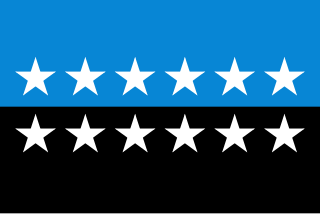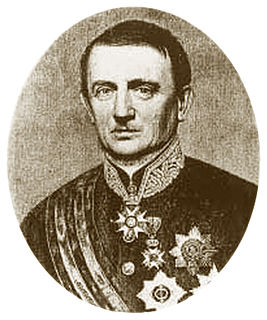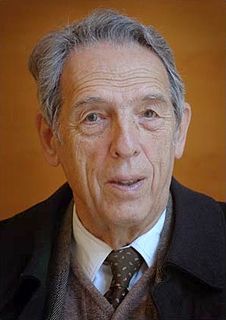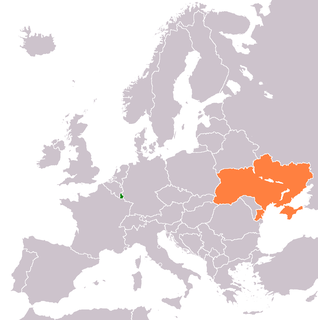Related Research Articles

The European Coal and Steel Community (ECSC) was a European organization created after World War II to regulate the coal and steel industries. It was formally established in 1951 by the Treaty of Paris, signed by Belgium, France, Italy, Luxembourg, the Netherlands, and West Germany. The ECSC was an international organization based on the principle of supranationalism, and started a process of integration which ultimately led to the creation of the European Union.
The politics of Luxembourg takes place in a framework of a parliamentary representative democratic monarchy, whereby the Prime Minister of Luxembourg is the head of government, and the multi-party system. Executive power is under the constitution of 1868, as amended, exercised by the government, by the Grand Duke and the Council of Government (cabinet), which consists of a prime minister and several other ministers. Usually, the prime minister is the leader of the political party or coalition of parties having the most seats in parliament. Legislative power is vested in both the government and parliament. The judiciary is independent of the executive and the legislature.

The Grand Duchy of Luxembourg has long been a prominent supporter of European political and economic integration. In 1921, Luxembourg and Belgium formed the Belgium-Luxembourg Economic Union (BLEU) to create an inter-exchangeable currency and a common customs regime. Post-war, Luxembourg became a founding member state of the United Nations, and dropped its policy of neutrality to become a founding member state of NATO. Luxembourg expanded its support for European integration, becoming a founding member state of the Benelux Economic Union, and one of the "inner six" founding member states of the three European Communities; the European Coal and Steel Community (ECSC), the European Atomic Energy Community (Euratom), and the European Economic Community (EEC). Subsequently, Luxembourg became a founding member state of the European Union (EU) when the EEC and ECSC were incorporated into it in 1993. Luxembourg is a founding member of the Schengen Area, abolishing internal borders amongst its member states, named after the Luxembourg village where the original agreement — since incorporated into EU law — was signed in 1985. At the same time, the majority of Luxembourgers have consistently believed that European unity makes sense only in the context of a dynamic transatlantic relationship, and thus have traditionally pursued a pro-NATO, pro-US foreign policy.

The European Court of Justice, formally just the Court of Justice, is the supreme court of the European Union in matters of European Union law. As a part of the Court of Justice of the European Union, it is tasked with interpreting EU law and ensuring its uniform application across all EU member states under Article 263 of the Treaty of the Functioning of the European Union (TFEU).

Gaston Egmond Thorn was a Luxembourg politician who served in a number of high-profile positions, both domestically and internationally. Amongst the posts that he held were the 19th Prime Minister of Luxembourg (1974–1979), President of the United Nations General Assembly (1975), and the seventh President of the European Commission (1981–1985).
In varietate concordia is the official motto of the European Union (EU), adopted in 2000. Its translations in the other 24 official languages of the EU have equal standing. It is inspired by its Latin-language version coined by the Italian Nobel prize winner Ernesto Teodoro Moneta: In varietate concordia or In varietate unitas, which is also used as a compromise. It is one of the newest symbols of the European Union, alongside the European flag and anthem but, unlike most, it is specific to the EU rather than originating from the Council of Europe.

Christine Stix-Hackl, Austrian jurist, Advocate General at the European Court of Justice from 2000 to 2006. Dr. Christine Stix-Hackl has been the second woman in the history of the European Court of Justice to take the position as Premier Avocat général in 2005. She was the Austrian Ambassador in the Grand Duchy of Luxembourg between 2007 and 2012. Ambassador Dr. Christine Stix-Hackl now presents her credentials Permanent Representative of Austria to the United Nations (Vienna), IAEA, UNIDO and CTBTO since June 2012.

The Order of Merit of the Grand Duchy of Luxembourg is an order of merit of Luxembourg, instituted on 23 January 1961 by Grand Duchess Charlotte. Grand Master of the order is the Grand Duke of Luxembourg. Besides the five classes, a gilt medal can also be bestowed.

The first efforts to create institutions to promote European unity began in the aftermath of the Second World War. In 1951 the first organization, the European Coal and Steel Community, was established and moves to create new communities quickly followed. Early attempts at military and political unity led to the Treaties of Rome in 1957.

The Juncker–Poos Ministry was the government of Luxembourg between 26 January 1995 and 7 August 1999. It was led by, and named after, Prime Minister Jean-Claude Juncker and Deputy Prime Minister Jacques Poos.

The High Authority was the executive branch of the former European Coal and Steel Community (ECSC). It was created in 1951 and disbanded in 1967 when it was merged into the European Commission.

The history of the European Union between 1993 and 2004 was the period between its creation and the 2004 enlargement. The European Union was created at the dawn of the post–Cold War era and saw a series of successive treaties laying the ground for the euro, foreign policy and future enlargement. Three new member states joined the previous twelve in this period and the European Economic Area extended the reach of the EU's markets to three more.

Carl Otto Lenz is a German lawyer, member of the German Bundestag (1965–1984) for the CDU and Advocate General at the European Court of Justice (1984–1997).
The Werner-Cravatte Ministry was the government of Luxembourg between 15 July 1964 and 6 February 1969. Throughout the ministry, the Deputy Prime Minister was Henry Cravatte, replacing Eugène Schaus, who had been Deputy Prime Minister in the first Werner-Schaus Ministry. It was a coalition between the Christian Social People's Party (CSV), and the Luxembourg Socialist Workers' Party (LSAP).
Sir Jean-Pierre Frank Eugene Warner was a jurist who served as the first British Advocate-General of the European Court of Justice after Britain's entry into the European Community in 1972. Warner was educated at Trinity College, Cambridge, serving as an officer of the Rifle Brigade during the Second World War before starting his career as a barrister. Appointed Advocate-General in 1972, he returned to England in 1981, where he was made a judge of the High Court of Justice, retiring in 1994 and dying in 2005.

The Tornaco Ministry was in office in Luxembourg from 26 September 1860 until 3 December 1867. It was reshuffled six times.
The Bech Ministry came into office in Luxembourg on 16 July 1926 after the resignation of the Prüm Ministry. It was reshuffled on 11 April 1932 and on 27 December 1936. It stepped down after the referendum on the so-called Maulkuerfgesetz, in which the majority of voters decided against the law.
The Simons Ministry was in office in Luxembourg from 23 September 1853 to 26 September 1860. Initially it just consisted of three members of the government, to which two more were added on 23 September 1854.

Heinrich Pfusterschmid-Hardtenstein is a former Austrian diplomat, who has also been active in the academic world and cultural policy.

Luxembourg–Ukrainerelations — a set of international bilateral relations between Ukraine and Luxembourg, as well as cooperation between the two countries in international organizations and other international institutions.
References
- ↑ "In memoriam: Jean Mischo - CVCE Website". www.cvce.eu. Retrieved 2016-05-20.